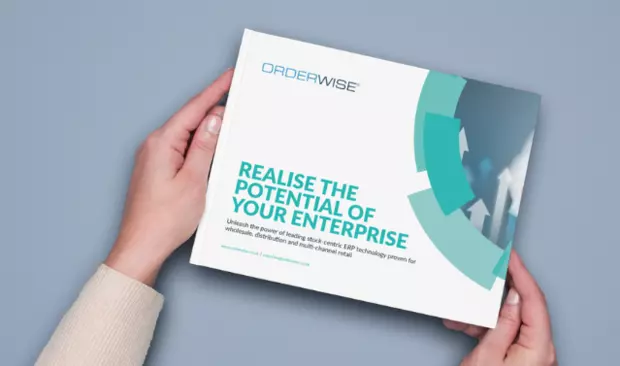
ERP with Orderwise
Looking for an agile, secure and data-driven system to bring together the processes in your enterprise? Unleash the power of leading stock-centric ERP technology.
Connect. Optimise. Evolve.

Discover how Orderwise customers are using powerful, modern ERP technology to increase operational efficiency across their supply chain.
Built for complex wholesale, distribution and retail environments, our integrated ERP system helps you connect your business functions including human resources, technology and data. That means you can take full control across all stock and order activity in one single system. With your operations integrated, configured and fully visible with real time data, you open the doors to improved operational efficiency, increased productivity and future growth for your business.
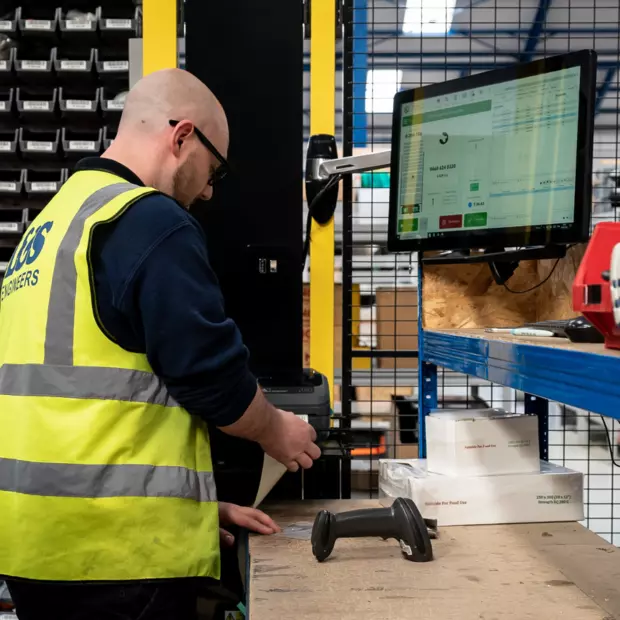
For wholesalers, distributors, retailers, manufacturers and beyond, it’s critical that you can manage all the key components of your operation from one single source of truth. Whether you’re scaling your business, or managing multiple partners, customers, locations or sales channels – a high-performance Enterprise Resource Planning implementation, will allow you to streamline information from multiple departments and locations.
Start driving smarter, faster and better business decisions allow OrderWise to implement Enterprise Resource Planning technology into your business.
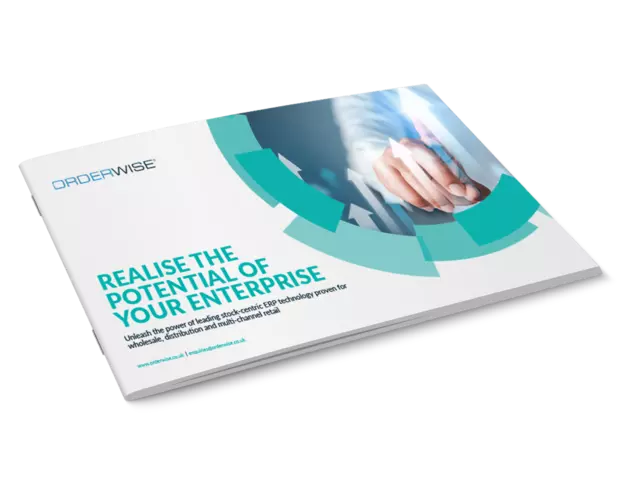
Looking to achieve enterprise-level business intelligence, control and profitability with a system built for stock-centric businesses? Look no further. Download the ERP-systems brochure to discover:
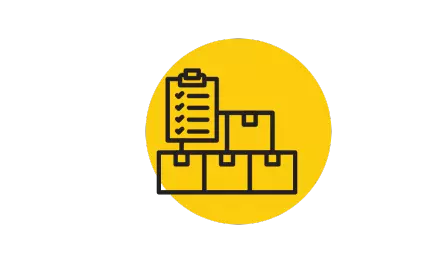
Achieve visibility and traceability across locations in real-time.

Control supply chains and make decisions with confidence.
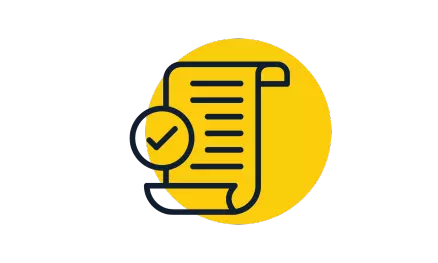
Generate and reconcile invoices in just a few simple steps.
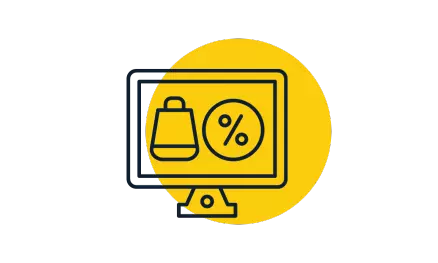
Enhance workflows to maximise sales and opportunities.
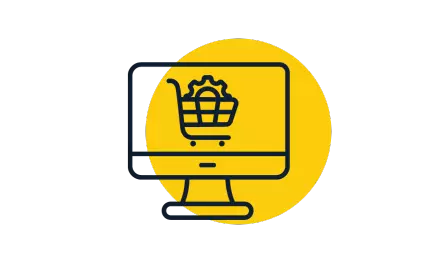
Create stylish, responsive and integrated B2B and B2C websites.
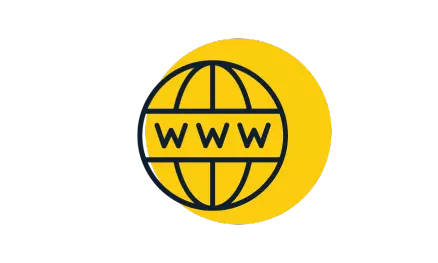
Simplify the process of orders and sales for B2B customers.

Pick orders faster and more accurately with HHTs.

Generate a complete view of your customer interactions.

Deliver key information to your teams, right when they need it.
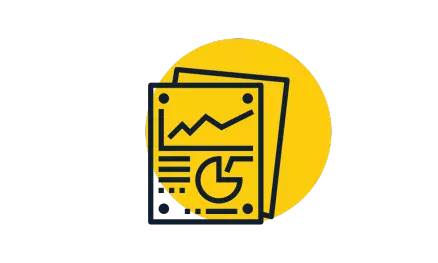
Leverage 200+ reports to analyse all aspects of your operations.
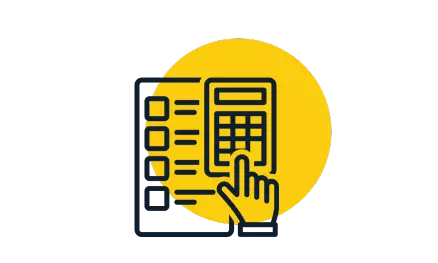
Manage integrated payables, receivables, credit control and more.

Manage inventory components, from simple bundles to multi-level BOMs.
Running a business with an old Enterprise Resource System is like putting together a puzzle without knowing what the picture is supposed to look like. You're often left guessing how each decision will affect the whole picture.
In today's tough economy and with customers expecting more, having a dependable system is crucial. But remember, not all systems are the same. It's key to know the differences in ERP platform before making a switch.
Orderwises' award-winning ERP platform helps automate your daily and long-term tasks. It gives you insights to smartly predict future trends. With our leading product, from a company you can trust, we'll make your business systems more effective, integrated, and easy to use.
With tailored ERP software, Sam Turner hasn’t just been able to manage growth and explore new marketplaces, they’ve transformed as a business whilst increasing productivity and lowering costs.
An ERP program is a comprehensive software solution designed to centralise and streamline all aspects of a business’s operations. By integrating various functions, such as sales, procurement, accounting, inventory management, customer relationship management (CRM), and more, this system enables seamless communication between different departments. This interconnected approach allows businesses to operate more efficiently, enhance collaboration, and make data-driven decisions that drive growth.
Increased efficiency: By consolidating multiple processes and systems into a single platform, an ERP system eliminates the need for manual data entry, reduces the risk of errors, and boosts overall productivity.
Enhanced collaboration: With a unified system in place, different departments can access real-time data, allowing them to collaborate effectively, share insights, and make informed decisions that benefit the entire organisation.
Real-time visibility: An ERP system provides a holistic view of your business operations, granting you real-time access to critical information and allowing you to identify areas of success, potential improvements, and overall performance trends.
Scalability: As your business grows and evolves, an ERP system can be adapted to accommodate new functions, requirements, and market changes, ensuring your operations continue to run smoothly and efficiently.
Data-driven decision-making: ERP systems offer access to valuable data and business intelligence tools, empowering you to make informed decisions that drive growth, innovation, and success.
Created in the 1960s, ERP systems were originally known as Material Requirement Planning MRP software, which ran on huge mainframe computers and was only affordable to larger businesses. It helped companies balance factory production with inventory management, enabling them to keep their stock levels low and reduce the amount of money tied up in warehouses.
The software soon expanded beyond manufacturing and stock control, integrating with other back-office functions such as finance, order management and distribution. It had moved on to become a more affordable and available solution, with businesses beyond the manufacturing industry making use of a connected operational platform. By the mid-1990s, governments and non-profit organisations had also begun to use the systems.
Today, Enterprise Resource Planning ERP software has become more advanced, offering powerful real-time performance insights, while helping to significantly reduce paper-based processes.
Choosing a software solution is an important strategic decision businesses must make as they grow. Companies want to ensure they get a fast return on their investment, and partner with the right supplier. However, with a lot of software jargon out there, decision-makers can often struggle to see what exactly is being proposed and ultimately understand the benefits of ERP solutions that are on offer.
For businesses just starting out, they can usually cope with managing information across multiple platforms and spreadsheets. However, as operations scale and complexities grow, this approach can become costly, time-consuming and prone to problems. It’s at this point that you’ll likely start looking for ways to keep up with increasing customer demand and avoid data mismanagement. Many business turn to what is known as an Enterprise Resource Planning system.
ERP systems are the backbone of organisations. They make sure that every department is working together efficiently and consistently.
A critical aspect of integrating an ERP system into your business is choosing the right technology provider, one that not only takes the time to understand the nature of your industry and your day-to-day operations, but also to understand your goals, strategy and culture.
Our specialist team provides unrivaled support and partnership, while ensuring you achieve the maximum benefits of your ERP functionality through increased automation. If you’re interested in talking to an expert about integrating your own operation with OrderWise, speak to one of our ERP solution experts.
On-Premise ERP: On-premise ERP programs are installed locally on your organisation’s hardware and servers. On-premise ERP programs are best suited for larger enterprises with complex requirements and dedicated IT teams.
Cloud-based ERP: Cloud-based ERP programs are hosted on the provider’s servers and accessed through the internet. Cloud-based ERP programs are scalable, offer real-time data access, and can be easily updated. They are ideal for small to medium-sized businesses and organisations that prioritise flexibility and accessibility.
Hybrid ERP: Hybrid ERP programs combine the features of both on-premise and cloud-based ERP programs. They offer the customisation and control of on-premise systems while leveraging the scalability and accessibility of cloud-based solutions. Hybrid ERP programs are suitable for organisations with unique requirements or those undergoing a digital transformation.
Industry-Specific ERP: Industry-specific ERP programs are tailored to the unique needs and requirements of specific industries, such as manufacturing, retail, healthcare, or construction. These ERP programs come with pre-built modules and features that address the specific challenges and processes of the targeted industry, reducing the need for extensive customisation.
Modular ERP: Modular ERP programs allow organisations to pick and choose the specific modules and features they need, creating a customised solution that aligns with their unique requirements. This type of ERP programs is suitable for businesses with specialised needs or those looking to gradually implement an ERP system by starting with specific functions.

Looking for an agile, secure and data-driven system to bring together the processes in your enterprise? Unleash the power of leading stock-centric ERP technology.
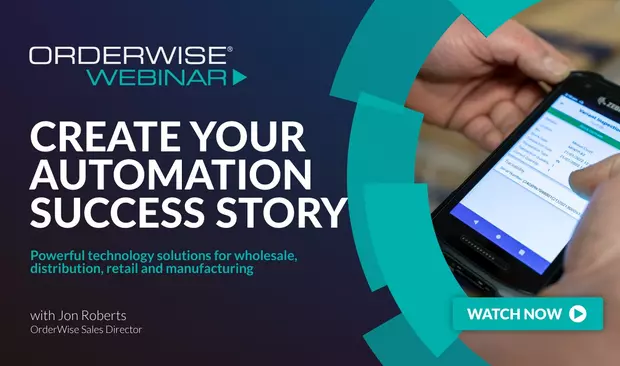
Explore how your business can begin to start making steps towards your own automation success story.

Discover the critical need for end-to-end visibility and data integration within the Wholesale & Distribution sector.